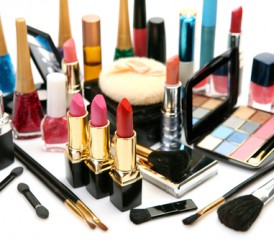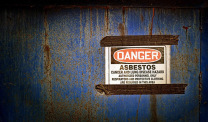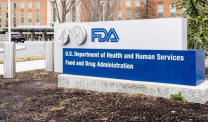Major Cosmetic Companies Moving Away from Talc in Makeup
Asbestos Exposure & BansWritten by Tim Povtak | Edited By Walter Pacheco

Consumer concerns and the threat of potentially costly lawsuits are driving cosmetic companies away from the long-standing manufacture of talc-based products.
Reuters News Service is reporting that Revlon, Chanel and L’Oreal — three of the biggest names in U.S. cosmetics — have been turning quietly to talc alternatives in the last few years.
Talc is the softest mineral on Earth and is used ubiquitously in thousands of personal care and cosmetic products to absorb moisture, provide lubrication and improve feel.
Unfortunately, talc also is mined near the Earth’s surface in proximity to dangerous asbestos, which has led to contamination issues.
Asbestos is a toxic mineral that, when inhaled or ingested, can lead to serious health problems, including mesothelioma and lung cancer.
Pharmaceutical giant Johnson & Johnson, facing more than 15,000 lawsuits related to possible cross contamination and its link to various cancers, announced earlier this year it was ending the sale of its iconic, talc-based Johnson’s Baby Powder in the United States and Canada.
Talc in Cosmetics Presents Legal Concerns
Many cosmetic companies, now facing the prospect of burgeoning legal issues, have been distancing themselves slowly from talc-based products.
Court documents obtained recently show that in 2017, Chanel stopped making its talc-based baby powder after a lawsuit by a woman who claimed the contaminated product caused her mesothelioma cancer.
A spokesperson for Chanel told Reuters the company recently stopped using talc in its loose face powder, but has continued to use it in eye shadow, blush and pressed powder products.
Revlon told Reuters it had stopped using talc in several, but not all, of its products. A spokesperson for L’Oreal admitted the company was exploring alternative softening materials, but still had not found one that worked as well as talc.
Cosmetic Companies Say Talc Products Are Safe
All of the companies continue to insist their products remain safe to use and asbestos-free because of strict in-house talc testing guidelines.
Johnson & Johnson has been outspoken in defense of its products, attributing the end of its baby powder distribution in the U.S. and Canada to negative publicity and declining sales.
Other personal care companies have stopped selling products containing talc, according to the recent report.
Beiersdorf, a German company focused on skincare products, replaced talc with cornstarch in its baby powder in 2018. Bausch Health, a pharmaceutical company based in Canada, stopped making its talc-based baby powder in 2019 after being named in numerous lawsuits.
Talc, which was once universally viewed as a quality mineral, has come under increased scrutiny in recent years from regulators, consumers and manufacturers.
The U.S. Food and Drug Administration announced in March that it found asbestos-contaminated talc in nine of the 52 products it tested during a year-long study.
Eight of those with traces of asbestos fibers were women’s makeup products, including three sold by Claire’s, another high-profile beauty company. The ninth was Johnson’s Baby Powder, which led to a well-publicized recall in 2019.
The Scientific Analytical Institute in Greensboro, North Carolina, found asbestos-contaminated talc in two new eyeshadow makeup products being sold by smaller companies on Amazon and eBay earlier this year.
Now in the midst of another 50-product analysis, the FDA is considering the establishment of an asbestos testing standard for consumer products.
Cosmetic companies currently do their own safety testing, often using a variety of testing methods, a process that has led to considerable debate over the safety of talc products.
Findings of asbestos contamination often are disputed by manufacturers that cite different testing methods and different testing results.
The testing dispute also includes the issue of the exact quantification of asbestos minerals in the products.
A team of experts from different federal agencies recommended in January that the FDA standardize the testing process.
“Standards are needed,” said Dr. Paul Howard, an advisor for the FDA Office of Regulatory Science. “They just don’t exist at this time.”






